Filter by
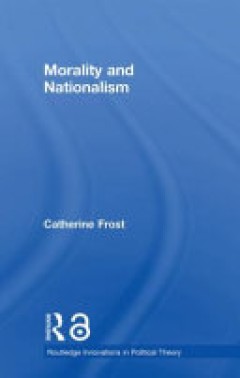
Morality and nationalism
This book takes a unique approach to explore the moral foundations of nationalism. Drawing on nationalist writings and examining almost 200 years of nationalism in Ireland and Quebec, the author develops a theory of nationalism based on its role in representation. The study of nationalism has tended towards the construction of dichotomies – arguing, for example, that there are political and c…
- Edition
- -
- ISBN/ISSN
- 9780415378994
- Collation
- 224 hlm
- Series Title
- -
- Call Number
- 320.5401

The politics and poetics of authenticity : a cultural genealogy of Sinhala na…
What is the role of cultural authenticity in the making of nations? Much scholarly and popular commentary on nationalism dismisses authenticity as a romantic fantasy or, worse, a deliberately constructed mythology used for political manipulation. The Politics and Poetics of Authenticity places authenticity at the heart of Sinhala nationalism in late nineteenth and twentieth-century Sri Lanka. I…
- Edition
- -
- ISBN/ISSN
- 9781787351288
- Collation
- xi, 161 p. ill;
- Series Title
- -
- Call Number
- 305.8914805493 POL H
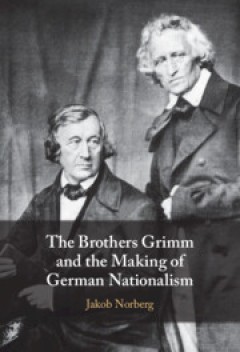
The Brothers Grimm and the Making of German Nationalism
In the first comprehensive English-language portrait of Jacob and Wilhelm Grimm as political thinkers and actors, Jakob Norberg reveals how history's two most famous folklorists envisioned the role of literary and linguistic scholars in defining national identity. Convinced of the political relevance of their folk tale collections and grammatical studies, the Brothers Grimm argued that they cou…
- Edition
- -
- ISBN/ISSN
- 9781009063890
- Collation
- viii, 268 p
- Series Title
- -
- Call Number
- 943.070922 BRO J
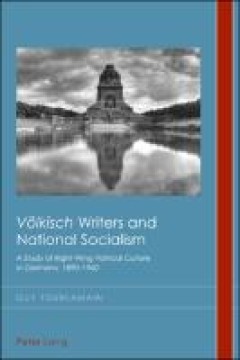
"Völkisch" Writers And National Socialism
This book provides a view of literary life under the Nazis, highlighting the ambiguities, rivalries and conflicts that determined the cultural climate of that period and beyond. Focusing on a group of writers – in particular, Hans Grimm, Erwin Guido Kolbenheyer, Wilhelm Schäfer, Emil Strauß, Börries Freiherr von Münchhausen and Rudolf Binding – it examines the continuities in völkisch-…
- Edition
- -
- ISBN/ISSN
- 9783039119585
- Collation
- Knowledge Unlatched (KU)
- Series Title
- -
- Call Number
- -
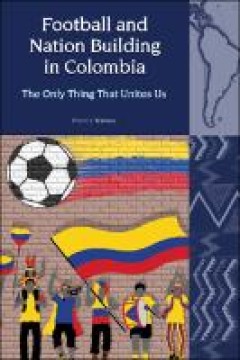
Football And Nation Building In Columbia ( 2010-2018 )
This book explores the pivotal role that football played as part of Colombian President Juan Manuel Santos’ national unity project centred on the peace process with the FARC. Football has huge political and social capital in Latin America, and has often been rhetorically deployed by governments for various ends; rarely, however, has football’s power and potential been used in such a deliber…
- Edition
- -
- ISBN/ISSN
- 9781802070491
- Collation
- -
- Series Title
- -
- Call Number
- History of sport
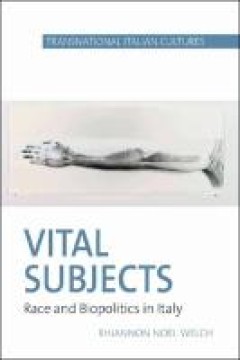
Vital subjects : race and biopolitics in Italy, 1860-1920
Drawing on a range of canonical and non-canonical literary, cinematic and social scientific texts produced in post-Unification Italy, Vital Subjects: Race and Biopolitics in Italy is an interdisciplinary study of how racial and colonial discourses shaped the "making" of Italians as modern political subjects in the years between its administrative unification (1861–1870) and the end of the Fir…
- Edition
- edision 14
- ISBN/ISSN
- 9781781382868
- Collation
- ix. :304 p. ;ill.
- Series Title
- -
- Call Number
- 900. VIT r
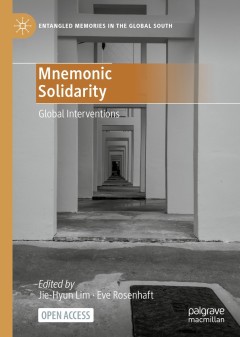
Mnemonic solidarity : global interventions
This open access book provides a concise introduction to a critical development in memory studies. A global memory formation has emerged since the 1990s, in which memories of traumatic histories in different parts of the world, often articulated in the terms established by Holocaust memory, have become entangled, reconciled, contested, conflicted and negotiated across borders. As historical act…
- Edition
- -
- ISBN/ISSN
- 9783030576691
- Collation
- xi, 135p, : ill
- Series Title
- Entangled Memories in the Global South
- Call Number
- 306.09 JIE m
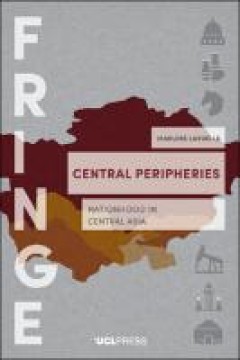
Central peripheries : nationhood in central asia
Central Peripheries explores post-Soviet Central Asia through the prism of nation-building. Although relative latecomers on the international scene, the Central Asian states see themselves as globalized, and yet in spite of – or perhaps precisely because of – this, they hold a very classical vision of the nation-state, rejecting the abolition of boundaries and the theory of the ‘death of …
- Edition
- -
- ISBN/ISSN
- 9781800080133
- Collation
- ix. :264 p.
- Series Title
- -
- Call Number
- 327.58. MAR c
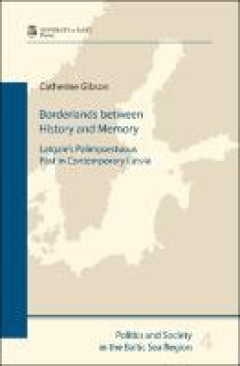
Borderlands between history and memory : latgale's palimpsestuous past in con…
This book offers innovative perspectives on the intersections between history and memory in Central and Eastern European borderlands. It focuses on the case of Latgale, the multicultural region of eastern Latvia which borders Russia, Belarus and Lithuania, and explores the multiple layers of memories and historical narratives about this borderland in Latvian public history. Based on a detailed …
- Edition
- -
- ISBN/ISSN
- 9789949772964
- Collation
- 192 p.
- Series Title
- -
- Call Number
- 504.9.L37 CAT b
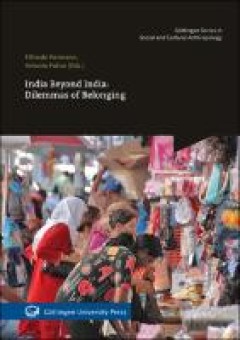
India beyond India : dilemmas of belonging
People’s transnational mobilities, their activities to build homes in their countries of residence and their connectivities have resulted in multiplicities of belonging to encountered, imagined and represented communities operating within various political contexts. Migrants and their descendants labor to form and transform relations with their country of origin and of residence. People who s…
- Edition
- -
- ISBN/ISSN
- 9783863953614
- Collation
- 214p.
- Series Title
- -
- Call Number
- 305.8914 IND h
 Computer Science, Information & General Works
Computer Science, Information & General Works  Philosophy & Psychology
Philosophy & Psychology  Religion
Religion  Social Sciences
Social Sciences  Language
Language  Pure Science
Pure Science  Applied Sciences
Applied Sciences  Art & Recreation
Art & Recreation  Literature
Literature  History & Geography
History & Geography